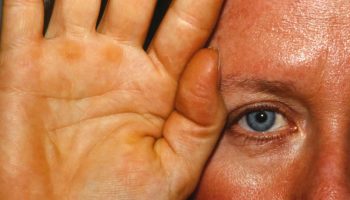Contents
What is heat intolerance
Heat intolerance is a feeling of being overheated when the temperature around you rises. Heat intolerance is also defined as the inability to maintain a comfortably body temperature in warm or hot weather. Heat intolerance can often cause heavy sweating. Heat intolerance usually comes on slowly and lasts for a long time, but it may also occur quickly and be a serious illness.
Exposure to extreme heat and sun can cause heat emergencies or illnesses. You can prevent heat illnesses by:
- Drinking plenty of fluids
- Keeping inside room temperatures at a comfortable level
- Limiting how much time you spend outdoors in hot, humid weather
Heat intolerance causes
Heat intolerance may be caused by:
- Amphetamines or other stimulants, such as those found in drugs that suppress your appetite
- Anxiety
- Caffeine
- Menopause
- Too much thyroid hormone (thyrotoxicosis)
MS heat intolerance
MS or multiple sclerosis is a progressive neurologic disorder that disrupts axonal myelin in the central nervous system. Demyelination produces alterations in saltatory conduction, slowed conduction velocity, and a predisposition to conduction block. An estimated 60–80% of MS patients experience temporary worsening of clinical signs and neurologic symptoms with heat exposure called the Uhthoff’s phenomenon 1. This heat intolerance in MS is related to the detrimental effects of increased temperature on action potential propagation in demyelinated axons, resulting in conduction slowing and/or block. Additionally, MS may produce impaired neural control of autonomic and endocrine functions. Isolating and interpreting mechanisms responsible for autonomic dysfunction due to MS can be difficult as it may involve sensory impairments, altered neural integration within the central nervous system, impaired effector responses, or combinations of all of these factors. MS lesions occur in areas of the brain responsible for the control and regulation of body temperature and thermoregulatory effector responses, resulting in impaired neural control of sudomotor pathways or neural-induced changes in eccrine sweat glands, as evidenced by observations of reduced sweating responses in MS patients.
Although not comprehensive, some evidence exists concerning treatments (cooling, precooling, and pharmacologic) for the MS patient to preserve function and decrease symptom worsening during heat stress. Cold water ingestion has been shown to enhance exercise tolerance of MS participants in the heat by ∼30% 2.
Heat intolerance symptoms
Heat intolerance is the inability to maintain a comfortably body temperature in warm or hot weather.
Being hot for too long can be a problem. It can cause several illnesses, all grouped under the name hyperthermia:
- Heat syncope is a sudden dizziness that can happen when you are active in hot weather. If you take a heart medication called a beta blocker or are not used to hot weather, you are even more likely to feel faint. Rest in a cool place, put your legs up, and drink water to make the dizzy feeling go away.
- Heat cramps are the painful tightening of muscles in your stomach, arms, or legs. Cramps can result from hard work or exercise. Though your body temperature and pulse usually stay normal during heat cramps, your skin may feel moist and cool. Find a way to cool your body down. Rest in the shade or in a cool building. Drink plenty of fluids, but not those with alcohol or caffeine.
- Heat edema is a swelling in your ankles and feet when you get hot. Put your legs up to help reduce swelling. If that doesn’t work fairly quickly, check with your doctor.
- Heat exhaustion is a warning that your body can no longer keep itself cool. You might feel thirsty, dizzy, weak, uncoordinated, and nauseated. You may sweat a lot. Your body temperature may stay normal, but your skin may feel cold and clammy. Some people with heat exhaustion have a rapid pulse. Rest in a cool place and get plenty of fluids. If you don’t feel better soon, get medical care. Be careful—heat exhaustion can progress to heat stroke.
Each year, most people who die from hyperthermia are over 50 years old. Health problems that put you at greater risk include:
- Heart or blood vessel problems
- Poorly working sweat glands or changes in your skin caused by normal aging
- Heart, lung, or kidney disease, as well as any illness that makes you feel weak all over or results in a fever
- Conditions treated by drugs, such as diuretics, sedatives, tranquilizers, and some heart and high blood pressure medicines; they may make it harder for your body to cool itself
- Taking several prescription drugs; ask your doctor if any of your medications make you more likely to become overheated.
- Being very overweight or underweight
- Drinking alcoholic beverages
Heat intolerance diagnosis
Your doctor will take a medical history and perform a physical examination.
Your doctor may ask you questions like these:
- When do your symptoms occur?
- Have you had heat intolerance before?
- Is it worse when you exercise?
- Do you have vision changes?
- Are you dizzy or fainting?
- Do you have sweating or flushing?
- Do you have numbness or weakness?
- Is your heart beating fast, or do you have a rapid pulse?
Tests that may be performed include:
- Blood studies
- Thyroid studies (TSH, T3, free T4)
Heat intolerance treatment
Heat intolerance treatment is to treat the underlying cause of heat intolerance.
You can lower your risk of heat illness by drinking fluids to prevent dehydration, replacing lost salt and minerals, and limiting your time in the heat.
You can prevent heat illnesses by:
- Staying in air conditioning place. If you live in a home or apartment without fans or air conditioning, try to keep your house as cool as possible. Limit your use of the oven. Keep your shades, blinds, or curtains closed during the hottest part of the day. Open your windows at night.
- If you live in a home or apartment without fans or air conditioning, try to keep your house as cool as possible. Limit your use of the oven. Keep your shades, blinds, or curtains closed during the hottest part of the day. Open your windows at night.
- Avoiding strenuous activities. Don’t try to exercise or do a lot of activities outdoors when it’s hot.
- Drinking plenty of liquids, such as water or fruit or vegetable juices. Stay away from drinks containing alcohol or caffeine.
- Wearing light clothing. Some people find natural fabrics, such as cotton, to be cooler than synthetic fibers.
- Showering, bathing, or sponging off with cool water.
Air conditioning is the strongest protective factor against heat-related illness. Exposure to air conditioning for even a few hours a day will reduce the risk for heat-related illness.
- Thermoregulatory dysfunction in multiple sclerosis. Handb Clin Neurol. 2018;157:701-714. doi: 10.1016/B978-0-444-64074-1.00042-2. https://www.ncbi.nlm.nih.gov/pubmed/30459034[↩]
- Cold Water Ingestion Improves Exercise Tolerance of Heat-Sensitive People with MS. Med Sci Sports Exerc. 2018 Apr;50(4):643-648. doi: 10.1249/MSS.0000000000001496. https://www.ncbi.nlm.nih.gov/pubmed/29140896[↩]





